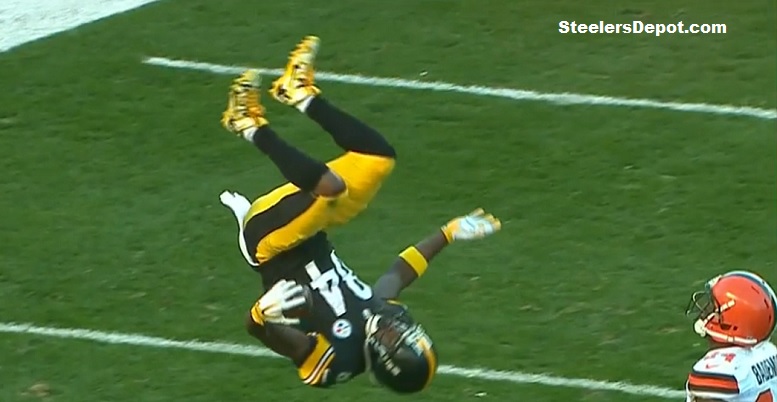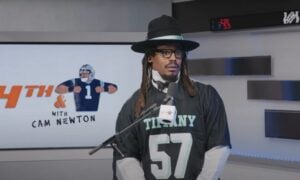It seems as though the subject is brought up every year at some point or another, fueled usually by some type of on-field activity to which someone, often an outsider, has taken umbrage: a professional athlete has acted in a manner that is not befitting of a role model.
Now is as good a time as any for a reminder: being paid as a professional athlete does not oblige one to become a role model.
The latest meaningless accusation of failure to be a role model was levied at Carolina Panthers quarterback Cam Newton by a local Tennessee mom, chagrined over his dancing in celebration of scoring a touchdown, and over the questions that her daughter allegedly launched at her in response.
After scoring on a particularly difficult carry, Newton’s celebratory dance went a bit above and beyond the norm for him, but it was not until the hometown Titans players, led by Avery Williamson, physically objected to the act that the quarterback’s dancing reaction could be said to have arisen to the level of ‘taunting’, such that that even means anything.
Earlier in the game, Williamson performed a celebratory dance of his own after recording a sack on Newton, by the way.
Irrespective of that, however, the point is simply that NFL players are not being paid to be looked up to. They’re being paid to play a game. Part of their off-field obligations typically include charity work—of which Newton is a very substantial participant—but by and large, they make millions of dollars to cross a white line with an object in their hands, or to assist or prevent others from doing so.
Newton, and any other player, is under no obligation to hold himself to a higher level of conduct and ‘sportsmanship’ just by virtue of being on a team and being paid a lot of money. He is under obligation to be the player and person to whom the Panthers organization gave a nice, big contract.
If you bring your child to a game expecting her to feast her eyes on a field of virtuous men, then you have done so under a serious misapprehension. While there is no shortage of excellent, upstanding individuals off the field—among them Heath Miller, Arthur Moats, and William Gay in the Pittsburgh Steelers’ locker room alone—it is not a part of their job description.
The notion that any title, outside of parent or guardian, should come attached with it the expectation, let alone the obligation, of being a role model is one that I find to make little sense to begin with. A role model is an individual that one looks up to, perhaps mirroring that person’s traits in an effort toward personal improvement.
That is not something that can be forced. Somebody either is a role mode or is not, by the nature of who they are, not the nature of their job. It is, in that sense, an honor that is earned, not given. So to expect to find it in a specific place, let alone on a football field, seems to me misguided.








